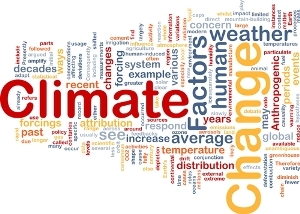
There is no way you can escape talk about climate change today. And a lot is written about it – its definition, reasons for it, how it affects us, remedial action. Every time I read about climate change I find new words and phrases related to it. As someone put it. “The Language surrounding climate change is changing right alongside the climate itself.” How many of the words and phrases mentioned in this article you, are familiar with?
Climate change:
The phrase “climate change” began Life as “global Warming.” It began to be used in the 1950s and was explained, as: “a long-term rise in Earth’s average atmospheric temperature.” In 1896, Swedish, scientist Svante Arrhenius declared that global warming existed and the reason was human behaviour. However, writers and speakers found the term, “global warming” confusing. Would the Earth just continue to get warmer and warmer and eventually have no winter at all? Scientists and, science writers needed a term that described the phenomenon in a better way. So they chose the term “climate change.”
Greenhouse effect:
This term began to be used in 1975. It came from theory that greenhouse gases such as carbon dioxide, water vapour and methane led to atmospheric heating. This let the sun’s energy through to the ground but impeded the passage of energy from the earth, back into space. This “greenhouse effect’ contributed, to global warming. The phenomenon, similar to how heat is trapped, inside ct greenhouse, was first explained by Joseph Fourier in 1827.
Global Warming:
The term “global warming” was recognised, and used widely in the late 1980s, after NASA scientist James Hansen told the U.S. parliament that there was clear cause-and effect relationship between greenhouse gases and global warming. In 2006, when former Vice-President Al Gore released the documentary An Inconvenient Truth in which he talks about carbon emissions, the phrase “global warming” got a big boost.
Polar Vortex:
The term polar vortex has been used widely across the world since 2014. The term came into existence to describe weather that brought extremely cold temperatures to parts of North America and Europe. The vortex is “a mass of swirling cold air that naturally exists at the Earth’s poles,” and in the Northern Hemisphere, during winter, the vortex expands, sending blasts of Arctic air to Canada and the U.S. This causes wild weather events described as “polar vortex.”
Green New Deal:
In February 2019, Senator Ed Markey and Representative Alexandria Ocasio-Cortez of the U.S. Congress (parliament) introduced, the Green New Deal (GND), a plan to fight climate change. The plan asked for investments in clean-energy jobs and, infrastructure, with the aim of “decarbonizing” the economy by shifting away from fossil fuels. The plan, is modelled on former President Franklin Delano Roosevelt’s New Deal in the 1930s. The word, “Green” was added to show that the plan was “environmentally sound, or beneficial.”
Microplastics:
This term, alarms naturalists and, environmentalists, and should alarm us too. Plastic reaches oceans and waterways, and then degrades into smaller pieces. Plastic pieces that are less than five millimetres in length have been called microplastics since the 1990s. They are now actively polluting every patch of water on Earth. They have been found in the Arctic, in the fishes caught across the globe and in human stool.
Single-use plastic
This term is a rage now, with governments thinking seriously of banning them. Single-use plastics are plastic items used once and they thrown away, like water bottles, straws and carry bags.
Ocean acidification:
Scientists believe that along with the landmass and the atmosphere, the oceans are also getting warmer. This causes ocean acidification. It means the ocean is becoming more acidic, and, the ocean floor is slowly being dissolved by the acid in the water. Scientists warn that something similar happened, during the Permian-Triassic period, leading to over 90% of marine species becoming extinct.
Climate refugees:
A refugee is “someone who is forced, to flee for their own safety, especially to a foreign country.” Since 2008 more than 24 million people have been displaced by extreme weather. Droughts, floods, deadly storms and heavy snowfall have driven people out of their homes to temporary shelters. These are the climate refuges. The term “climate refugees” was first coined in the year 1995.
Negawatt:
“Negawatt A negavvcitt is “a unit of energy that is saved by conserving energy.” The term derives from, “megawatt” unit of measuring electricity. Negawatt is the opposite of megawatt – “nega” is short for “negative.” The term has been around since 1984. Scientists give us proof to show that creating energy-saving technologies may be even more beneficial than trying to find alternative energy sources. Efforts Like the Green New Deal tell us to use energy carefully, reduce energy spending and get negawatts. So the term “negawatts” is being used often. Solastalgia
Climate change isn’t just having a disastrous effect on our environment. It’s also having an effect on our mental health and well-being. Environmental change can cause real distress and anxiety. People are traumatised by sudden floods, storms and severe drought. Wildfires triggered by climate change disrupt people’s Livelihoods and Iifestyles. In the early 2000s, environmental philosopher Glenn Albrecht named, this environmental distress solastalgia. In a 2007 report of drought and coal-mining in Australia, Albrecht wrote that “people exposed to environmental change experienced negative affect that is exacerbated by a sense of powerlessness or Lack of control, over the unfolding change process.” The word “Solastalgia” combines the Latin solacium, (“comfort, solace”) with the Greek algos, “pain.”
Use these words when you speak and write. Knowing the right words to discuss the sorry state of our environment and the reasons for the degradation will help to find ways to solve problems. Language is a powerful tool to express our anxiety. It helps to start discussions on what we need to do collectively to reverse the damage caused by climate change.
Picture Credit : Google

